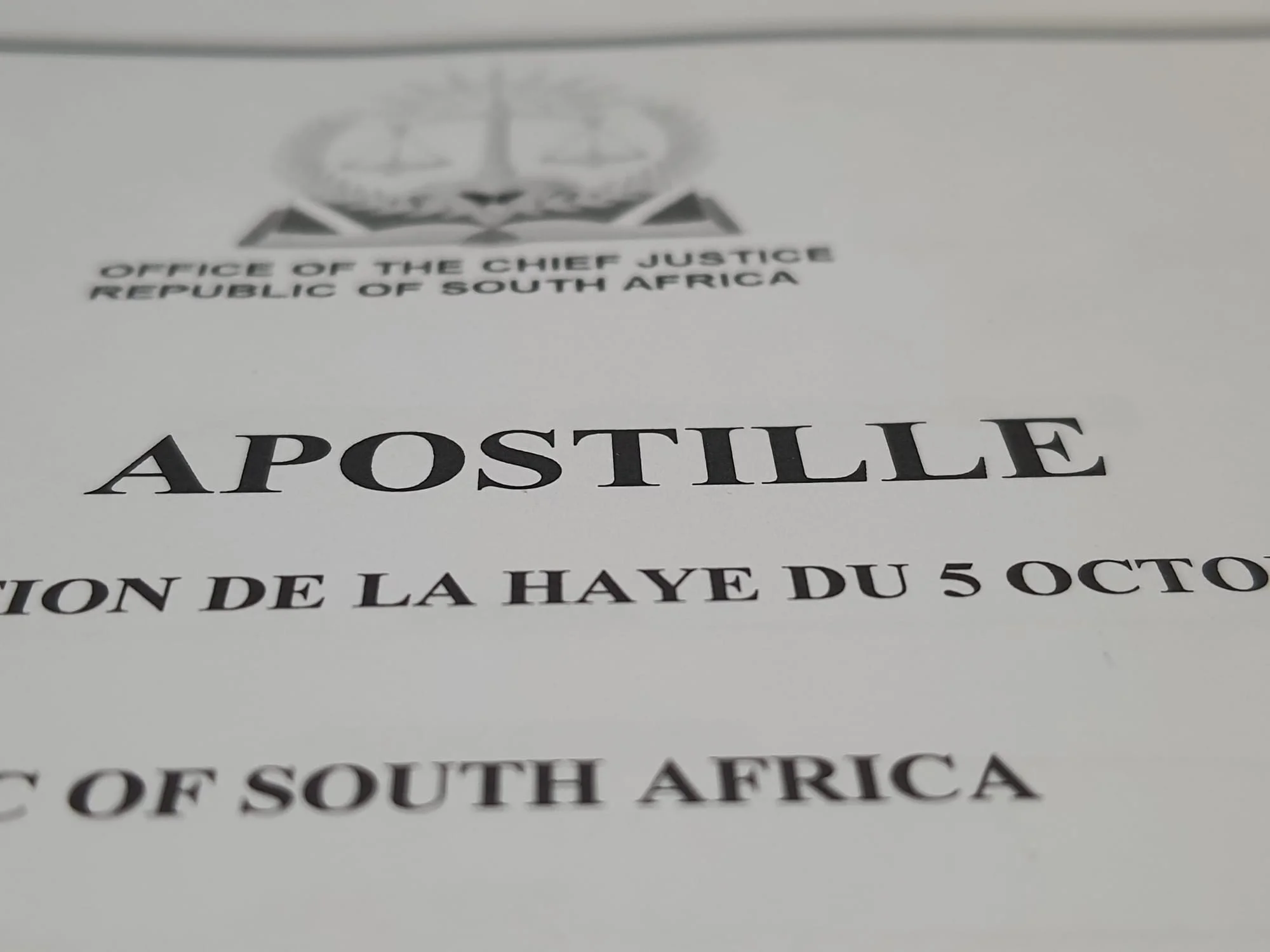
Navigating the bureaucratic procedures can be challenging and time-consuming. Whether you require document authentication for international use or need critical paperwork from the Department of Home Affairs, understanding the process is crucial. This comprehensive guide aims to demystify document legalisation in South Africa, providing you with the necessary information to streamline the procedure and save valuable time.
What is Document Legalisation?
Document legalisation refers to the process of verifying a public document for usage in another country. It ensures that the document is recognised and trusted by the foreign country. Legalisation methods include apostilles and other forms of authentication.
In South Africa, there are four main routes to document legalisation:
- Apostille and High-Court Authentication: This route is for documents to be used in countries that are signatories of the Hague Convention. The documents are apostilled or authenticated by the High Court and can be legally used in these countries.
- Attestations: Attestations are required for South African documents to be used in countries in the Middle East, such as the United Arab Emirates, Qatar, Kuwait, and Saudi Arabia. It follows a slightly different process and requires documents to be attested.
- Authentication: Authentication is necessary when legalising documents for use in countries that are not signatories of the Apostille Convention. The documents must be authenticated and submitted to the relevant embassy for legalisation.
- Vault Copies: Vault copies are authentic copies of original registration paperwork stored at the archival offices of the Department of Home Affairs. These copies are used to prove the accuracy of South African certificates and are often required for travel or immigration purposes.
Legalisation of Civic Certificates from the Department of Home Affairs
The Department of Home Affairs issues vital documents such as birth certificates, marriage certificates, and passports. While Apostil.co.za cannot assist with passport applications, they can help with obtaining civic certificates from the Department of Home Affairs in the fastest time possible.
Abridged Birth and Marriage Certificates from Home Affairs:
- Abridged birth certificates only state the name and surname of the child’s biological mother. They were issued between 1995 and March 2013.
- Unabridged birth certificates indicate the details of both the child’s biological parents and were issued after March 2013.
- Abridged marriage certificates are issued by default after a wedding in South Africa and are suitable for those residing and planning to stay in the country.
- Unabridged marriage certificates are the version required for overseas applications and are issued by the Department of Home Affairs.
Vault Copies of Your Documents
Whenever a South African citizen is born, gets married, or passes away, the original registration paperwork is stored in the vault at the Department of Home Affairs. Vault copies, authentic duplicates of the original forms, are used as protective measures against fraud and may be required by foreign passport and visa-issuing authorities.
Validity and Expiration of Authentications and Apostilles
Apostilles and authentications do not have expiration dates. However, their validity may be subject to specific requirements of the requesting authority. For example:
- Police clearance certificates and apostilles are often requested to be less than three or six months old for visa applications.
- A letter of no impediment, necessary for marriage, may need to be issued with an apostille within a specific timeframe.
The date stamp on the original document is crucial, and the date on the apostille does not affect its validity. It is essential to consider the specific requirements of the relevant government department when assessing the validity of documents.
Conclusion
Navigating the document legalisation process in South Africa can be complex, but with the right information and proper planning, it can be streamlined. Whether you need documents from the Department of Home Affairs, police clearances, or apostilles and authentications, following the steps outlined in this comprehensive guide will save you time and ensure a smooth process. Stay updated on any changes in requirements or procedures and seek professional assistance when necessary to simplify your document legalisation journey.
Was this helpful?
3 / 0
#Department of Home Affairs #Documents #South African Police Service (SAPS)